Table of Contents
Chiltepin vs Chilipitin: Setting the Record Straight
If you're searching for "chilipitin," you're likely looking for information about chiltepin peppers (also spelled chiltepín or chili tepin). The term "chilipitin" doesn't refer to a recognized spice or pepper variety. This confusion commonly occurs due to misspellings or mishearings of "chiltepin" - the authentic wild chili native to the southwestern United States and Mexico. Let's clarify what chiltepin peppers actually are and why they're worth knowing about.

What Are Chiltepin Peppers?
Chiltepin (Capsicum annuum var. glabriusculum) are small, round wild chili peppers considered the grandfather of all cultivated chilies. Known as "bird's eye peppers" because birds disperse their seeds, these peppers grow wild in desert regions of Arizona, Texas, and Mexico. Unlike the fictional "chilipitin" referenced in some online content, chiltepines are a documented heirloom variety with protected geographical status in some regions.
These tiny peppers (typically 0.2-0.4 inches in diameter) pack significant heat but offer a complex flavor profile that makes them prized by chefs and food enthusiasts. When dried, they're sometimes called "pepitas de pájaro" (bird's seeds) in Mexican cuisine.
| Pepper Type | Heat Level (Scoville) | Flavor Characteristics | Common Uses |
|---|---|---|---|
| Chiltepin | 50,000-100,000 SHU | Bright, citrusy, smoky with rapid heat build-up | Salsas, finishing spice, pickled preparations |
| Habanero | 100,000-350,000 SHU | Fruity, floral with slower heat development | Hot sauces, Caribbean cuisine |
| Chipotle | 2,500-8,000 SHU | Smoky, earthy, mild heat | Moles, adobo sauces, braises |
| Jalapeño | 2,500-8,000 SHU | Grassy, vegetal with moderate heat | Stuffed peppers, nachos, poppers |

Heat Level and Flavor Profile Compared
Chiltepin peppers sit between habaneros and serranos on the heat scale, registering 50,000-100,000 Scoville Heat Units (SHU). What makes them unique is their rapid heat onset - the burn hits quickly but fades faster than habaneros. Flavor-wise, they offer bright citrus notes with subtle smokiness, making them versatile for both fresh and dried applications.
Unlike the inaccurate information sometimes found online about "chilipitin," chiltepines have a documented flavor profile verified by culinary experts and agricultural studies. Their heat builds quickly but doesn't linger as long as habaneros, making them more manageable for everyday cooking while still providing significant spice.
Practical Cooking Applications
Using authentic chiltepin peppers requires different techniques than the fictional "chilipitin" often described online. Here's how to properly incorporate these wild peppers into your cooking:
- Fresh peppers: Slice thinly for salsas or finely mince as a finishing touch on tacos. Wear gloves when handling - their oils can irritate skin.
- Dried peppers: Toast whole dried chiltepines in a dry skillet for 30 seconds before grinding. The heat intensifies when dried, so use sparingly.
- Vinegar infusions: Create chiltepin vinegar by steeping 10-15 dried peppers in 1 cup vinegar for 2 weeks. Perfect for adding controlled heat to dishes.
- Balance with fat: Chiltepin's heat binds with fats, so pair with avocado, cheese, or crema to moderate intensity while preserving flavor.
- Regional pairings: In authentic Sonoran cuisine, chiltepines complement fish, wild game, and desert plants like nopales (cactus paddles).
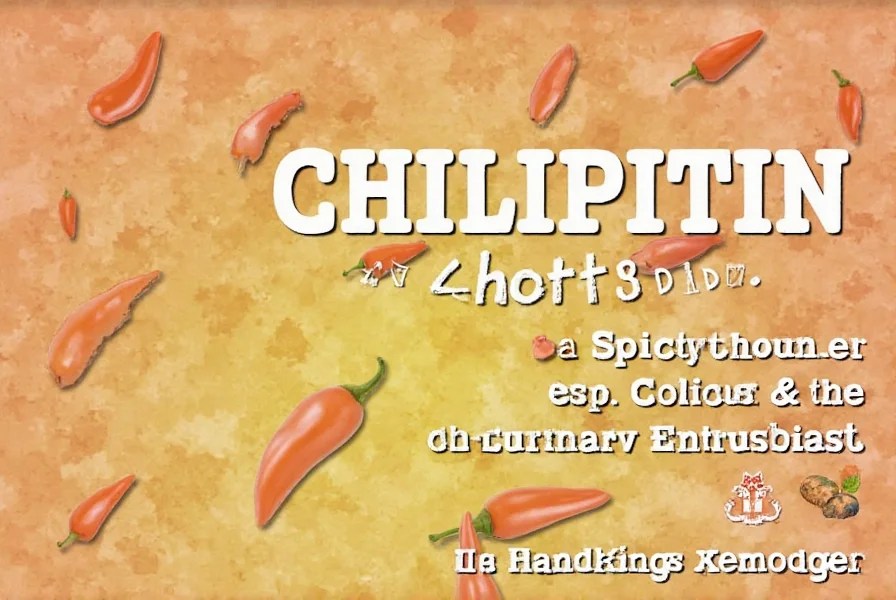
Where to Find Authentic Chiltepin Peppers
Unlike the nonexistent "chilipitin," chiltepin peppers are protected in some regions and require careful sourcing:
Authentic Sources
- Mexican markets: Look for "chiltepines silvestres" or "chiltepins auténticos" from Sonora or Chihuahua. Authentic packages will specify harvest location.
- Specialty online retailers: Reputable sources include The Spice House, Mexican Foodstuffs, and Native Seeds/SEARCH (which supports conservation efforts).
- Southwestern farmers markets: In Arizona and Texas, look for vendors from the Tohono O'odham Nation who traditionally harvest wild chiltepines.
What to Avoid
- Products labeled "chilipitin" - this isn't a recognized term in culinary circles
- Extremely cheap chiltepin products (authentic wild-harvested peppers are labor-intensive to collect)
- Products without origin information (real chiltepines have terroir-specific qualities)
Authentic dried chiltepines should have a deep reddish-brown color, brittle texture, and intense citrus-spice aroma. When purchasing, check for certifications from organizations like Slow Food USA's Ark of Taste, which recognizes heirloom varieties.
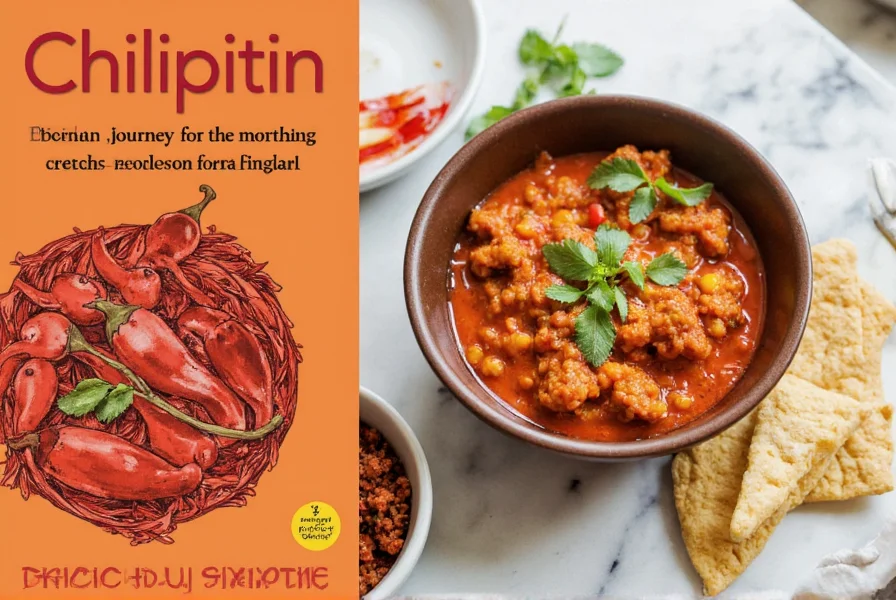
Authentic Chiltepin Recipes to Try
These recipes use chiltepin peppers properly, unlike the inaccurate "chilipitin" recipes sometimes found online:
1. Sonoran-Style Chiltepin Salsa Fresca
Ingredients: 12 fresh chiltepin peppers, 2 cups diced tomatoes, ½ cup diced white onion, ¼ cup cilantro, juice of 1 lime, salt to taste. Method: Finely mince chiltepines (wear gloves), mix with other ingredients. Let rest 30 minutes before serving to allow flavors to meld. The heat will be intense initially but becomes more balanced.
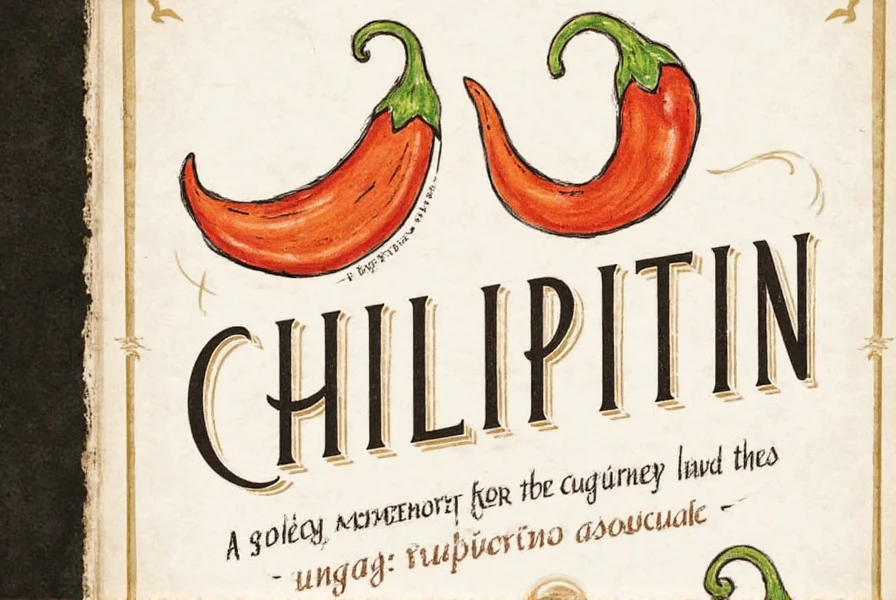
2. Chiltepin-Infused Olive Oil
Method: Combine 1 cup extra virgin olive oil with 15-20 dried chiltepin peppers in a saucepan. Heat on lowest setting for 15 minutes (do not boil). Cool completely, then strain. Use within 30 days for best flavor and safety. Perfect for finishing grilled fish or drizzling over soups.
3. Traditional Chiltepin Honey
Method: Simmer 1 cup honey with 10 dried chiltepin peppers for 5 minutes. Cool and store in airtight container. Remove peppers after 24 hours for medium heat, or leave for hotter infusion. Excellent with goat cheese or in barbecue glazes.
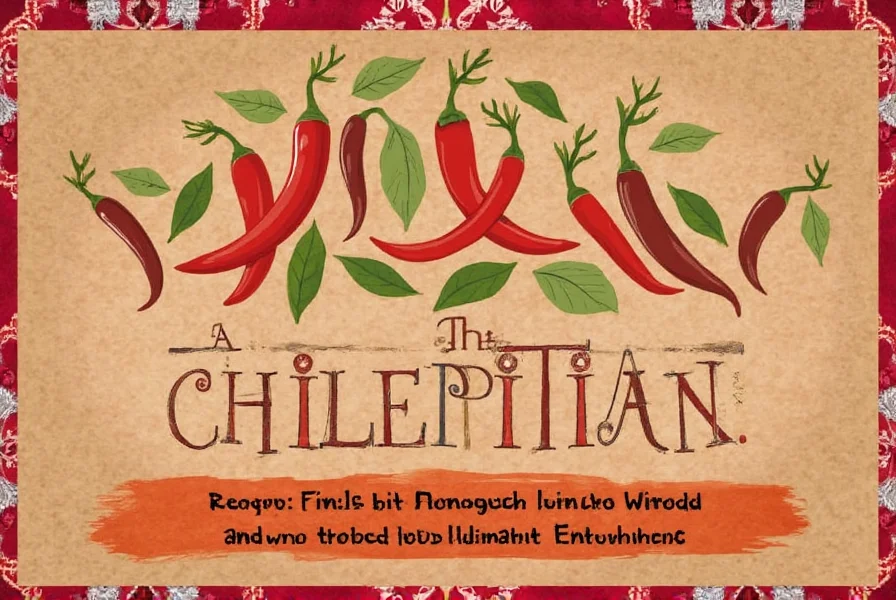
Frequently Asked Questions
Is chilipitin the same as chiltepin?
No, "chilipitin" is not a recognized term in culinary or agricultural contexts. You're likely referring to chiltepin (also spelled chiltepín), which are authentic wild chili peppers native to the southwestern United States and Mexico. This confusion commonly occurs due to misspellings or mispronunciations.
How hot are real chiltepin peppers compared to other chilies?
Authentic chiltepin peppers rate 50,000-100,000 Scoville Heat Units (SHU), making them hotter than serranos (10,000-23,000 SHU) but milder than habaneros (100,000-350,000 SHU). What distinguishes them is their rapid heat onset that builds quickly but fades faster than comparable peppers.
Where can I find genuine chiltepin peppers?
Look for chiltepines at Mexican markets (ask for "chiltepines silvestres"), specialty online retailers like The Spice House, or Southwestern farmers markets. Authentic products will specify their origin (typically Sonora, Mexico or southern Arizona). Be wary of products labeled "chilipitin" as this isn't a legitimate product name.
Are chiltepin peppers different from bird's eye peppers?
While both are called "bird's eye" peppers, chiltepines (North American) differ from Asian bird's eye chilies. Chiltepines have a brighter, more citrusy flavor with smokier notes, while Thai bird's eyes are fruitier with different capsaicinoid profiles. They're not interchangeable in recipes requiring authentic regional flavors.
How should I handle chiltepin peppers safely?
Always wear gloves when handling fresh chiltepines, and avoid touching your face. Work in a well-ventilated area as the capsaicin becomes airborne when cutting. If you get oil on your skin, use milk or oil to remove it - water will spread the burn. Never use plastic containers for storage as capsaicin can leach into the plastic.
Why are authentic chiltepin peppers so expensive?
Real chiltepines are wild-harvested (not cultivated), making collection labor-intensive. In some regions like Sonora, Mexico, harvesting follows traditional practices that protect the ecosystem. Conservation efforts limit quantities, and legitimate suppliers pay fair wages to harvesters, contributing to higher prices than mass-produced peppers.

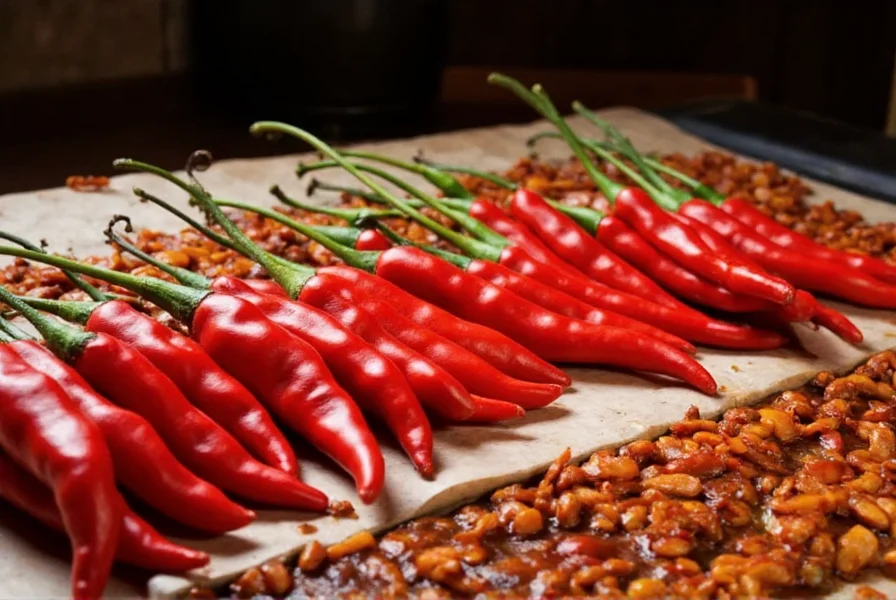









 浙公网安备
33010002000092号
浙公网安备
33010002000092号 浙B2-20120091-4
浙B2-20120091-4